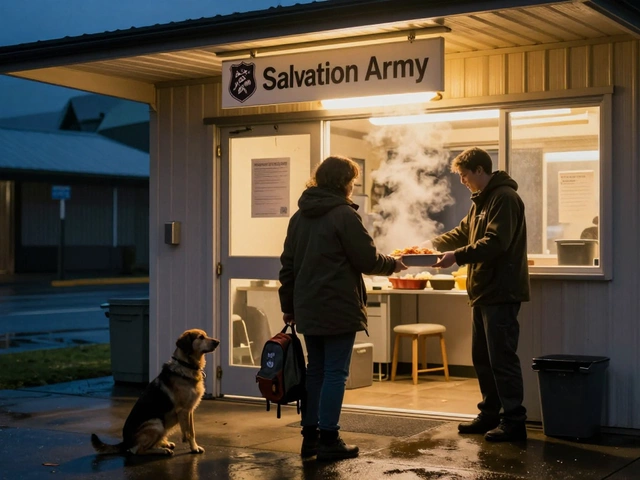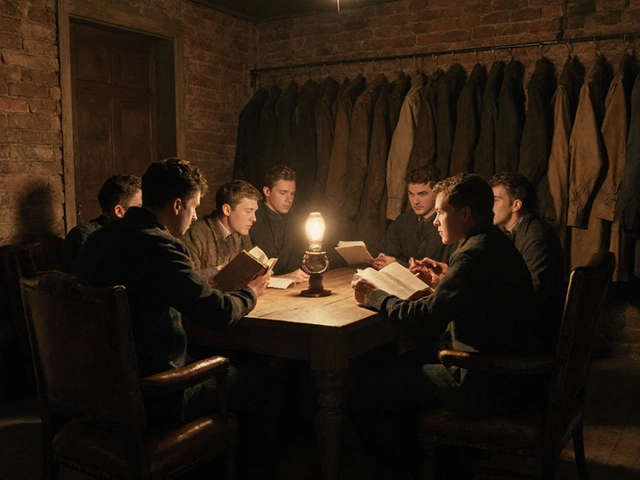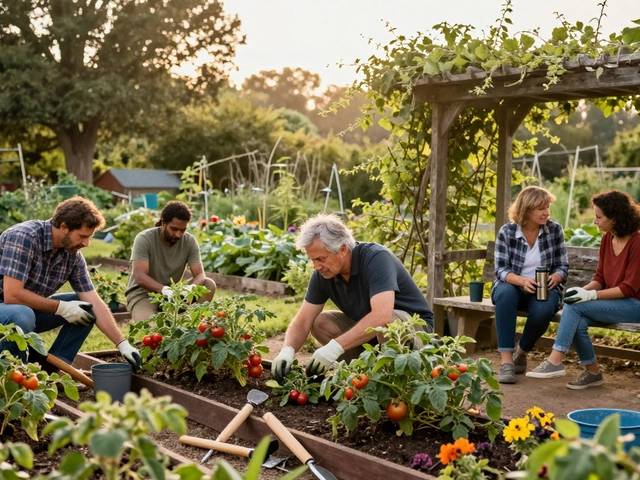You clicked because you want the shortest path from good intention to real help. Here it is: the simplest charity isn’t writing a big cheque, joining a board, or planning a fundraiser. It’s noticing a need in front of you and meeting it with what you have-your attention, your time, or a small, practical gift. No fanfare, no form, no delay.
TL;DR: the answer and how to use it today
The simplest form of charity is immediate, person-to-person help: paying attention, doing a small kind act, or giving a tiny, useful amount of time or money right when someone needs it.
- Definition you can act on: notice a need → respond with what’s in your hand (attention, time, a small item or a few dollars) → move on without expecting anything back.
- Why it works: zero red tape, near-zero friction, fast relief. It respects dignity because you respond to the specific need, not a guess.
- What it looks like: holding a door when someone’s struggling, paying for an extra loaf for the food shelf, walking a neighbour’s bin back on a windy Wellington day, sending a $5 top-up to a friend who’s short on bus fare.
- What to avoid: performative giving, unsafe situations, and donations that create hassle (e.g., broken items). When in doubt, ask or choose cash/time.
- How to scale: build a tiny habit-1 minute, $1-$5, or one small act per day-then increase when you can.
How to start: the one-minute charity playbook
If you can help safely in under a minute, do it now. If it needs more time or money, schedule it or pick a smaller version. Here’s a simple flow you can lean on anywhere.
- Notice a need. Ask yourself: is someone near me struggling with something small I can fix? Examples: a pram at a door, a confused tourist, a flat bike tyre, a coworker drowning in tasks.
- Choose your tool: attention, time, or a small item/money.
- Attention: listen for a minute, give directions, share information, say thanks.
- Time: carry a bag, stand in for a quick task, pick up litter, return a lost card.
- Small item/money: buy a snack, pay for a bus fare, add an extra canned good to your shop.
- Check safety and consent.
- Personal safety first. Keep your distance if needed. Offer, don’t insist.
- Use simple language: “Kia ora-want a hand?” or “Would it help if I…?”
- Act fast, then leave it light. Help, smile, wish them well. No lecture, no strings.
- Build the habit. Tie a micro-act to something you already do:
- Morning coffee → add a $2 koha to the cafe’s pay-it-forward jar.
- Commute → offer your seat, hold the lift, or help with a suitcase.
- Grocery shop → add one shelf-stable item for the food bank.
Quick decision guide you can keep in your head:
- If it’s within two arms’ length and safe: help now.
- If money is easier today than time: give a tiny amount to a nearby need.
- If you’re unsure what’s helpful: ask, or choose cash/time over stuff.
Rules of thumb that keep it effortless:
- One-minute rule: if it takes under 60 seconds, do it on the spot.
- 1-1-1 habit: 1 small act per day, 1% of time per week (about 1 hour), 1% of income per month if you can.
- Local-first: solve the closest need you can see or verify. Then think bigger.
Common pitfalls-and fixes:
- Giving that creates work (e.g., dumping bags of unsorted clothes): switch to a gift card or ask the charity what they actually need.
- Overthinking the “perfect” charity: pick something small and nearby now; save deep research for larger gifts.
- Compassion fatigue: set a cap (time or money) per week and stick to it without guilt.

Real-world examples, data, and what helps most
This is what simple charity looks like in daily life, including things I see around Wellington. Borrow any of these and make them yours.
- On the street or bus: offer a seat, help lift a pram, hold a door, guide someone who looks lost. Metlink mornings get busy-your 20 seconds saves someone else’s day.
- At the shops: add one staple (rice, oats, pasta sauce) for the food bank drop box; buy a spare warm pair of socks in winter.
- At work: bring a spare lunch for the forgetful colleague; share a template that saves someone an hour; cover a quick shift change.
- At school or uni: share notes, organise a book swap, walk a classmate to support services if they’re overwhelmed.
- At home: check on an older neighbour after a storm; take bins in on windy days; cook a double batch and share.
- Online: send a quiet grocery voucher to a friend going through a rough week; offer focused feedback on a CV; report harmful content to keep spaces safe.
- Community events: join a one-hour beach clean, backyard planting day, or sausage sizzle fundraiser; bring gloves and a smile.
What do people actually do? Global studies like the Charities Aid Foundation’s World Giving Index keep finding the same top three behaviours: helping a stranger, donating money, and volunteering time. New Zealand sits near the top cluster year after year, with a strong showing on “helping a stranger.” That backs the idea that tiny, direct acts aren’t just nice-they’re normal and powerful.
Here’s a practical snapshot of small actions and what they achieve. These are typical ranges; actual costs vary by place and organisation.
| Simple act | Time/Cost | What it accomplishes | Notes / Source |
|---|---|---|---|
| Hold a door / carry a bag | 10-30 seconds | Immediate relief; prevents strain or a fall | Low friction; ask first |
| Listen without fixing | 3-5 minutes | Lowers stress; helps someone feel seen | Use open questions; avoid advice-dumping |
| Add one shelf-stable item to your shop | $2-$5 | Supports food banks with useful staples | Choose protein, grains, long-life milk |
| Pay a bus fare / top-up for someone short | $3-$10 | Gets a person to work, school, or an appointment | Offer quietly; respect a no |
| Donate blood | 30-60 minutes | One donation can help up to three people | NZ Blood Service info |
| Plant a native seedling at a community day | 1-2 hours or $10-$20 | Improves local habitat and storm resilience | Common range for NZ groups |
| Evidence-backed global donation (e.g., malaria nets) | $2-$5 per net; larger gifts save more lives | Reduces malaria risk; high cost-effectiveness | AMF/GiveWell analyses |
Why small gifts outperform big plans (sometimes):
- They match the need. The right 30 seconds beats a perfect plan delivered tomorrow.
- They multiply. One act prompts others; kindness spreads in public settings.
- They keep you in the game. Small, repeatable actions stop you from burning out.
Want your micro-gifts to hit harder? Use this quick targeting list:
- Food, transport, warmth, and information are almost always helpful.
- Gift cards beat random items. They fit any diet and reduce waste.
- Ask frontline groups what’s short this week before donating goods.
New Zealand-specific tips I’ve learned living in Wellington:
- Windy days: secure and return neighbours’ bins; rescue scattered recycling.
- Rainy commutes: keep a spare compact umbrella to loan; offer lifts on steep hills when safe.
- Koha culture: many community spots have a small koha jar-dropping coins keeps shared spaces open and welcoming.
Checklists, cheat-sheets, FAQ, and next steps
Keep it easy. Pick one list below, save it to your notes, and use it this week.
Daily micro-acts checklist (pick 1):
- Offer your seat or hold a door.
- Add one food item to a donation box.
- Send a kind message to someone who went quiet.
- Take in a neighbour’s bin when it’s windy.
- Share directions with someone who looks lost.
Weekly rhythm (15-30 minutes total):
- One tiny donation ($2-$10) to a local need or trusted global fund.
- One hands-on favour (carry, cover, collect, coach).
- One piece of community care (litter pick, library return, garden tidy for someone).
Money rules that reduce friction:
- Round-up rule: set your card to round up purchases to charity if your bank/app offers it.
- 1% pledge: if comfortable, aim 1% of income to giving; increase later if it feels good.
- Envelope method: keep a small “kindness cash” envelope or a prepaid card for quick help.
What not to donate (unless asked):
- Broken or unwashed items-creates extra work.
- Perishables close to expiry-hard to distribute fast.
- Large furniture without checking need and delivery first.
Mini-FAQ
- Is charity only about money? No. Attention, time, and useful information often solve the problem faster than cash.
- Does a tiny gift really matter? Yes. The World Giving Index shows “helping a stranger” is common and impactful. Locally, a $5 staple can tip a household through the week.
- How do I avoid scams? Give in person to a clear need, or donate to registered charities. In NZ, check Charities Services for registration status and annual returns.
- Should I give locally or overseas? Do both if you can. Local gifts build community; evidence-backed global gifts can save or improve lives at lower cost per outcome.
- Can I claim tax back in NZ? Donations to approved donee organisations usually qualify for a 33.33% tax credit. Keep receipts and check Inland Revenue guidance for details.
- What if my help is declined? Say “All good” and move on. Consent matters; a no is not a failure.
- I’m on a tight budget-what can I give? Kind words, a spare 5 minutes, or sharing accurate information are all valuable and free.
- How do I keep this up without burning out? Set small limits (e.g., one act a day, $5 a week) and take rest days without guilt.
Simple decision tree you can screenshot:
- See a need? → Is it safe? → Yes → Can it be fixed in 1 minute? → Yes → Do it now.
- If No (needs more time/money) → Can you give a tiny version today? → Yes → Give that; schedule the rest.
- If Not today → Pass it on: tell someone who can help, or share verified info.
Next steps by situation
- Busy parent: combine with errands-add one staple to your shop; bring a spare snack for a classmate; introduce yourself to one neighbour.
- Student: swap notes, help a classmate with forms, volunteer one hour at a campus drive.
- Shift worker: keep a “kindness cash” coin stash; leave a positive note in the staff room; offer to swap a micro-task with someone who’s running late.
- New to town: learn a few local phrases (kia ora, kei te pai); join a library or community group; ask what’s needed before donating items.
- Manager/team lead: create a “give an hour” rota for community service; set a small discretionary budget for emergency staff support.
- Retiree: phone a friend weekly, join a planting day, become a library buddy for reading practice.
Credible places to learn more (no links, just names you can search): Charities Aid Foundation (World Giving Index), NZ Blood Service (blood donation facts), Charities Services (registration and reporting), GiveWell (evidence on cost-effective charities), New Zealand Red Cross (local support and disaster readiness), and your city council’s volunteering portal.
If you remember only one line, make it this: notice, act, move on. Small, near, now.





